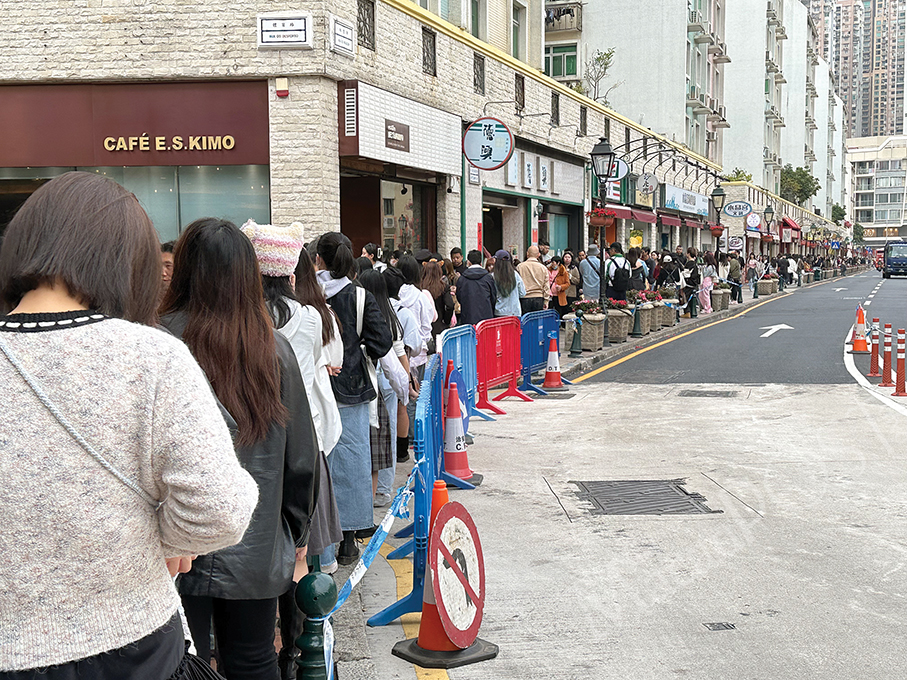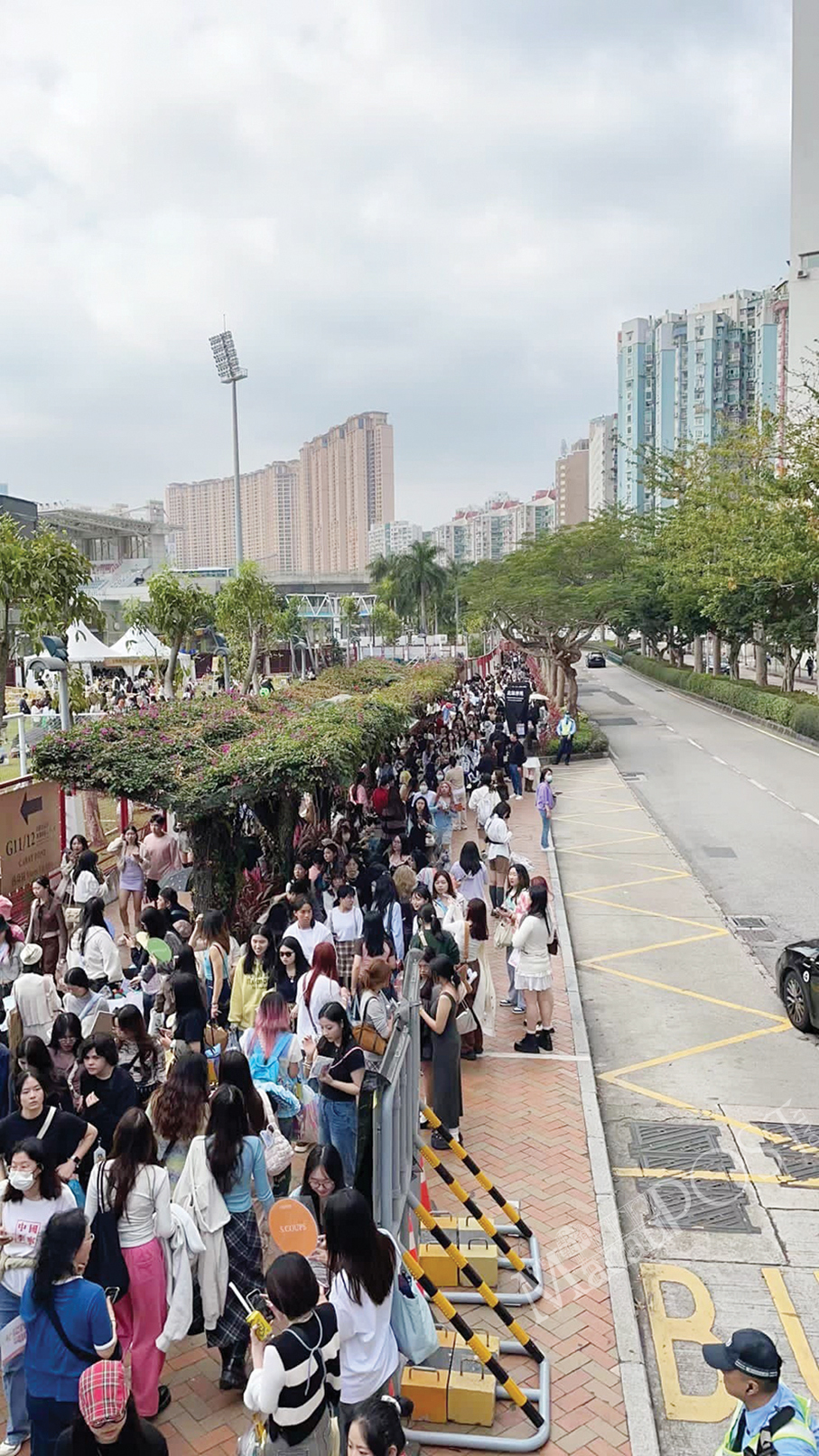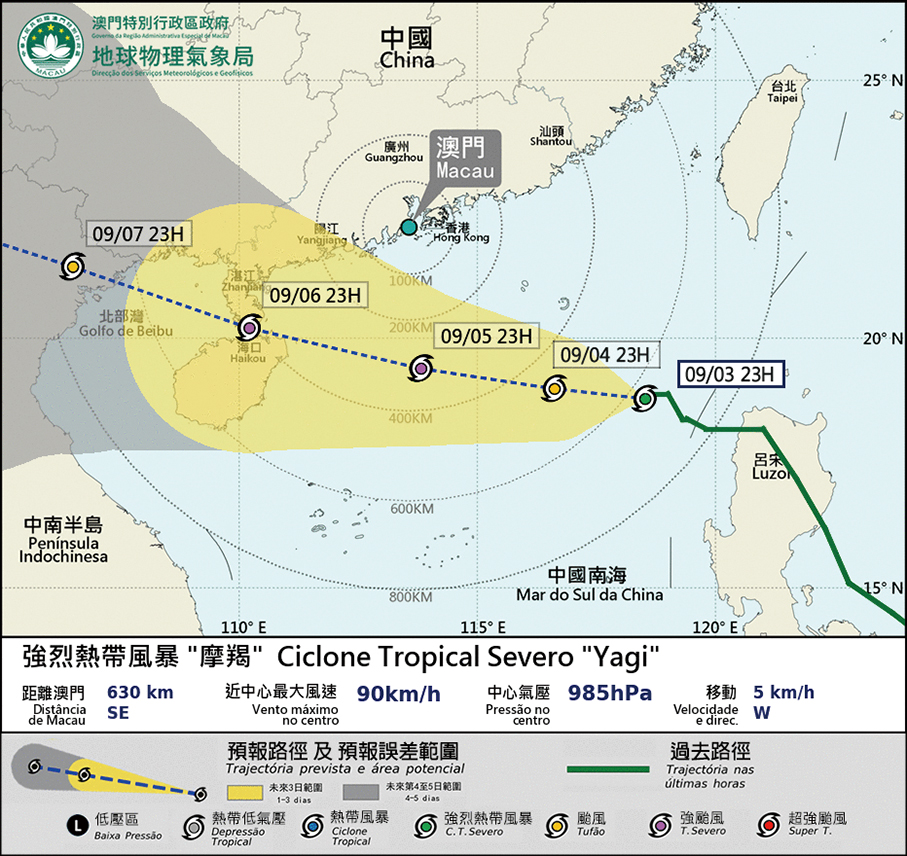The Post asked two Taipa residents and two business operators on Saturday and yesterday randomly about their views on staging a K-Pop outdoor gig at the Olympic Sports Centre Stadium, with all complaining about the traffic arrangements due to the concert.
South Korean boy band Seventeen performed at the stadium on Saturday and yesterday, and the Transport Bureau (DSAT) imposed between Friday and yesterday a range of temporary traffic arrangements around the stadium because of the concert.
As the date of the concert approached, a number of netizens complained about the concert on social media platforms, claiming that the outdoor concert violated Macau’s noise protection law. They alleged that the two-evening gig had “hugely” affected their lives, but others said that hosting this kind of large-scale concerts in Macau could revitalise the city’s post-pandemic economy.
Hoi, who is in her twenties and lives in the Prince Flower City building, said that, generally speaking, she has no objection to holding concerts at the Olympic Sports Centre Stadium as long as it does not affect the daily life of those living nearby. However, she was quick to add: “It was quite a bit of nonsense for the government to temporarily close the bus stops nearby just because of a private event, which totally affected us”. Hoi also said she understood that the government was trying to attract more visitors to Macau through different approaches, and she acknowledged that “concerts or other large-scale performances will not be held there 365 days a year”. Living in the Prince Flower City building, Hoi said the noise caused by the concert didn’t bother her, but her friends and relatives who live closer to the stadium suffered a lot from it.
Kong, 24, lives in a residential building on Rua do Regedor, urged the government to rent out the Macau East Asian Games Dome in Cotai for indoor concerts next time, adding that as a resident living in the stadium’s neighbourhood, the impact by the concert was “a bit too much”. As someone living nearby, Kong said that she had not issue with the concert’s noise level, but insisted that she could not stand the temporary traffic measures implemented during the two days of the concert, adding: “Although I usually travel more by car than by public transport, I still could not return home as usual due to the closure of many roads near the stadium, causing me big trouble”.
Leong, who owns a restaurant on Rua do Regedor, said that the concert was good for business, pointing out that her takings had risen by over 10,000 patacas over the weekend compared to previous Saturdays and Sundays. However, she was quick to add: “It indeed brought us more business, but at the same time, it also brought traffic to a standstill nearby.” Because of the band’s fans, Leong spent more time than usual getting to work. “My restaurant opens at noon, but I had to leave home at about 9 a.m., in order to avoid having to take a crowded bus,” she said.
“It was the first time for me to realise that there are fans from far-away places who closely follow their idols,” Kong, a sundry shop sales assistant, said, adding that the concert was good for Macau’s economy, but “the government really has to think about how to improve its traffic measures, such as adding more bus trips, to deal with such huge crowds”. Kong said that the shop’s revenue was “more or less the same” as before the two concerts, adding that “travellers in Macau are more inclined to queue for fish balls”.
Bus stops, LRT station, streets closed temporarily
A DSAT statement on Thursday announced that in cooperation with a private entertainment company that organised the two concerts, the “ Stadium “ and “Olympic Sports Centre/ Stadium” bus stops would be temporarily closed from 10 a.m. on Saturday through Sunday night, while the “Wa Bao Garden”, “Mei Keng Garden” and “Stadium/Jockey Club” bus stops as well as the footbridge at the “Stadium” light rapid transit (LRT) station would be temporarily suspended from 8 p.m. on Saturday and 8 p.m. Sunday.
Both sold-out concerts began in the evening and ended at night.
The statement also noted that the “Stadium” LRT station would also be closed during both concerts.
In response to the expected increase in the number of people around the stadium, the Public Security Police (PSP) implemented vehicular traffic control measures there for the two evenings and nights, during which vehicles were not allowed to enter certain streets, including Rua de Fernão Mendes Pinto, Rua Direita Carlos Eugénio, Rua do Delegado, and Rua do Regedor.
Based on the Post’s observation on the two concert days, a massive crowd gathered at the Olympic Sports Centre, with a queue stretching beyond Rua do Regedor and the stadium.
Macau has held concerts in the stadium in the past, but there had never been large-scale road closures as this time.
Sports facilities available for purposes other than sports: Pun
Speaking to the media on the sidelines of an event on Friday, Sports Bureau (ID) President Pun Weng Kun said that many sporting facilities in Macau are multi-functional and available to be leased by different entities for purposes other than sport, depending on their schedule and each venue’s features. He was quick to add that no matter which venue was used, the relevant public entities will always require users to comply with Macau’s laws and leasing requirements.
Responding to an enquiry by public broadcaster TDM on Thursday, the Environmental Protection Bureau (DSPA) said that it had received noise complaints from a number of residents about the concert, adding that the concert organisers were requested to minimise the impact on residents living nearby.
Reportedly, most of the concertgoers – mainly young women – came from the mainland, Hong Kong and South Korea. According to local social media reports, much to the disappointment of local Seventeen fans, no concert tickets were sold in Macau.
According to Chef Executive Ho Iat Seng’s 2024 Policy Address, cultural events are part of the government’s effort to achieve the appropriate diversification of Macau’s economy.
Seventeen
Seventeen is a South Korean boy band formed a decade ago. The group consists of 13 members. The name Seventeen, according to Wikipedia, is derived from the expression “13 members + 3 units + 1 group”, representing how the 13 members are divided into three different units and come together to form one cohesive group.

Pedestrians crowd the pavement on Rua do Regedor yesterday afternoon before the gig by the K-Pop band Seventeen in the evening. – Photo: Yuki Lei

Fans of K-Pop boy band Seventeen queue at the stadium on Saturday afternoon to enter enter the Olympic Sports Centre Stadium in Taipa for their concert. – Photo: William Chan








